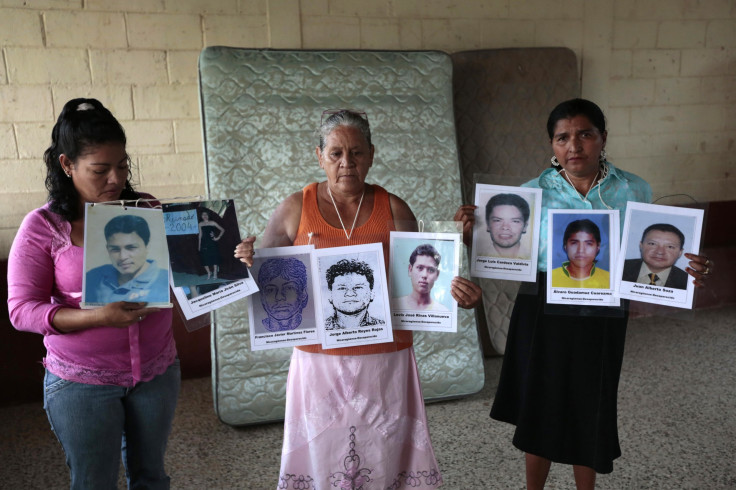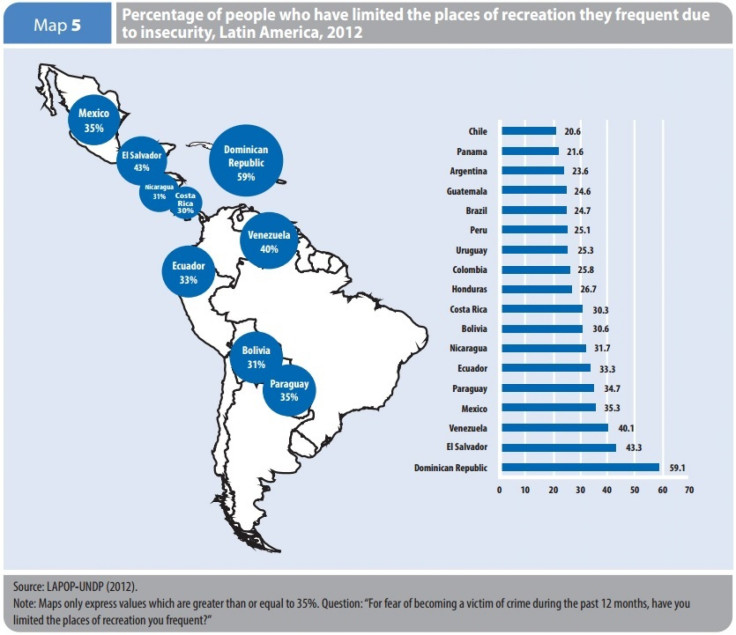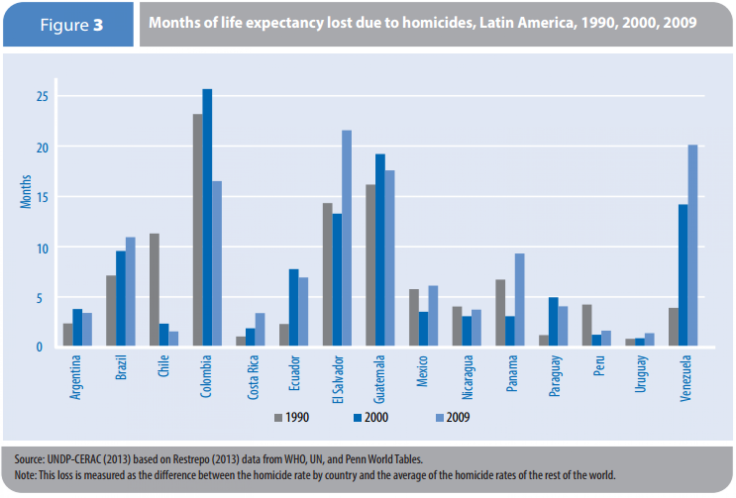Despite Excellent Economic Development In Latin America, Inequality And Violence Are Still Taking A Chunk Of The Glory

Mexico is not the only country in Latin America where GDP suffers at the expense of crime and street violence. The whole region, in fact, sees its economic development trampled because of it. “Citizen Security with a Human Face,” a report presented Monday by the United Nations Development Program, outlined the high cost of violence in Latin America, taking examples from 18 countries -- and the figures are far from optimistic.
According to the study, violence took 10.5 percent of Honduras’ GDP, 8.7 percent from Paraguay’s, 3.3 percent from Chile’s, 3 percent from Uruguay’s and 2.52 percent from Costa Rica’s. The costs were calculated by combining the expenses a country incurs deriving from anticipating a crime (police presence, surveillance systems), the consequences of a crime (health care) and the response to a crime (police response, investigations).
Long term consequences of crime are both personal and economic: In the region as a whole, one in three people have changed their usual shopping or recreation locale due to violence. Around half of Latin Americans who have been victims of a crime have stopped going out at night. Violence has taken a million lives in Latin America: In 60 percent of the continent, the homicide rate is more than 10 victims per 100,000 people -- the limit for the World Health Organization to consider murder as an epidemic.

Heraldo Muñoz, UNDP chief for Latin America, explained during the presentation in Madrid that insecurity is not the police’s issue or even the government’s matter. “It is a development problem, and it should be treated as such,” he said.
The report explains that “insecurity in the region is multidimensional, including job precariousness, persistent inequality and insufficient social mobility.” And that is, in Muñoz’s opinion, the paradox. “There has been an exceptional economic development in Latin America. Poverty has been eliminated, but inequality still exists. Violence and insecurity have increased because the access to social mobility is still very low and it creates a group of people who want their piece too.”

The report also clarifies that, contrary to popular belief, there is no correlation between drug trafficking and crime. “For most Latin Americans the problem does not lie in drugs,” said Muñoz. The report confirms that, except for Brazil and Mexico, citizens are more worried about petty crime than drug cartels.
In order to start solving the problem, the UNDP says it should begin by new security policies, realistically adapted to society. The economic factor is also fundamental: “We need a more inclusive and productive development. The problem is not poverty, is inequality.”
© Copyright IBTimes 2024. All rights reserved.





















